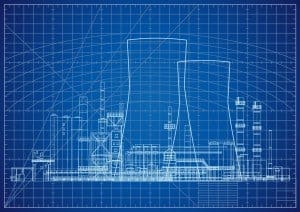
Knowledge Loss in the Nuclear Sector
One of the most crucial challenges that the nuclear industry faces today is the effective transfer of expertise and knowledge from senior members to more junior members of an organisation. Failure to make this transfer will lead to many difficulties including knowledge loss. These effects would be detrimental to future generations and will impact safety and security of a nation, not to mention other factors such as loss of innovation. Therefore ways in which knowledge and expertise can be preserved are crucial to any organisation within the nuclear industry.
Communication is Key
Within any industry the communication of information and knowledge is key to an organisations efficient functioning. When discussing the transfer of knowledge this can also include inter-departmental communications.
An organisation that requires full fluidity of its operations demands effective communication of knowledge between differing forms of expertise. Human resource information is required by all employees, whilst external contractors may need to access specific elements of knowledge from manual and technical information.
It is therefore important to have a knowledge base that can handle the communication / information complexities that an organisation requires. The ability to not only segment information but also be able to deliver the different information at the point of need from one system to another is one of the key benefits of knowledge management.
While vast databases such as Operational Experiences (OPEX) exist within the nuclear industry and are an effective way of storing previous expert’s experiences, the way in which knowledge is disseminated or accessed by other industry personnel is not as efficient as it might be. Knowledge Management allows for databases such as OPEX to be leveraged in a way that knowledge is transferred effectively to those who need it, and can be accessed via a simple search.
Within any industry an organisation’s ability to share knowledge effectively, either between business personnel or between different systems, can often determine its overall efficiency.
How can Knowledge Management Help?
Knowledge management can be used in a variety of industries to address a variety of issues, and most notably, in the case of the nuclear industry, the transfer of knowledge from one generation to another. For example a new recruit or external contractor would simply be able to perform a search within the knowledge base to obtain answers or documentation that matches their query. This can be done using Natural Language Search technology whereby a user submits a question in their own words, and without the need to insert words within their question that are contained within the document. The result of this search provides a list of documents that are ranked statistically as to the relevance of the user’s search.
Natural Language Search combined with a system that has the ability to learn from previous searches, is a powerful tool to ensure that accurate answers can be provided in an efficient and timely manner.
Natural Language Search
Through the use of our own patented Natural Language Search technology, users can ask a question in their natural phrasing, and still be given the correct answer. This is highly useful for future employees who may not be as familiar as others with technical terms or phrases but need access to content. Natural Language Search ensures that for the user it as simple as ask a question, get the answer.
Taxonomic divisions of documentation within the knowledge base will also serve to ensure that any document is just a few clicks away for the user. These taxonomies can be configured according to your organisation’s needs and will play a large role in increasing productivity and overall efficiency of your workers.
A Centralised Repository for Everyone
By using a Knowledge Management system, the lessons learnt from experienced nuclear experts can be captured, documented and stored within a knowledge base. This would allow easy access to knowledge at the point of need, and more importantly to new workers within a nuclear organisation to get up to speed quickly.
Due to the need for a broad depth of expertise within the nuclear industry, many nuclear organisations favour the use of external contractors of whom have a wide range of knowledge within their field. It is often the case that external contractors need information beyond the procedures of which they are assigned, and simply put they know what to do but are not always completely certain as to why they are doing it.
Providing highly skilled external contractors with access to a knowledge base, would ensure that they have all the information that may be needed available to them at the point of need.
Secure Intellectual Property both Internally and Externally
A comprehensive knowledge base can be configured in such a way that only users who have the necessary authorisation to do so, see information that may be highly sensitive be it commercially or intellectually. In an industry such as that of the nuclear industry where intellectual property is sacrosanct, securing this information is vital.
The Key Benefits of a Knowledge Management Solution
• Reduced risk of inconsistencies
• Improved and increased sharing of knowledge
• Retention of tacit knowledge
• Increased efficiency and productivity
• Reduced operational costs
• Improved service to clients
• Access to multiple information repositories from one portal
• Increased speed to competency
For more information on how Knowledge Management could benefit you and your institution click on the link below to contact us.
